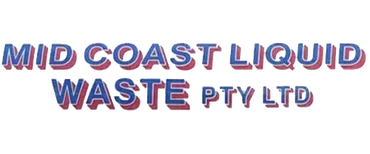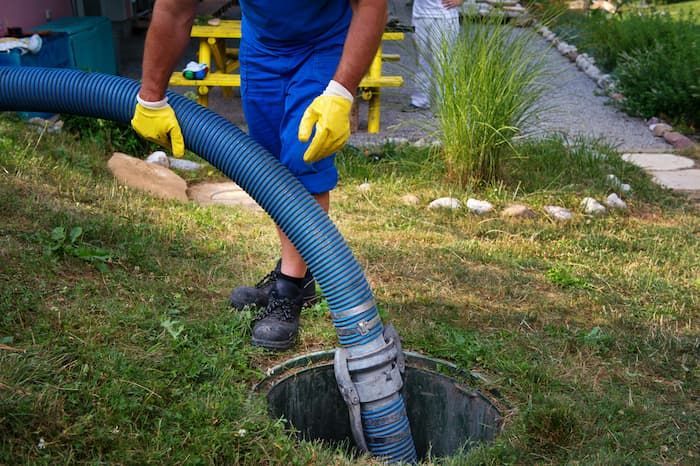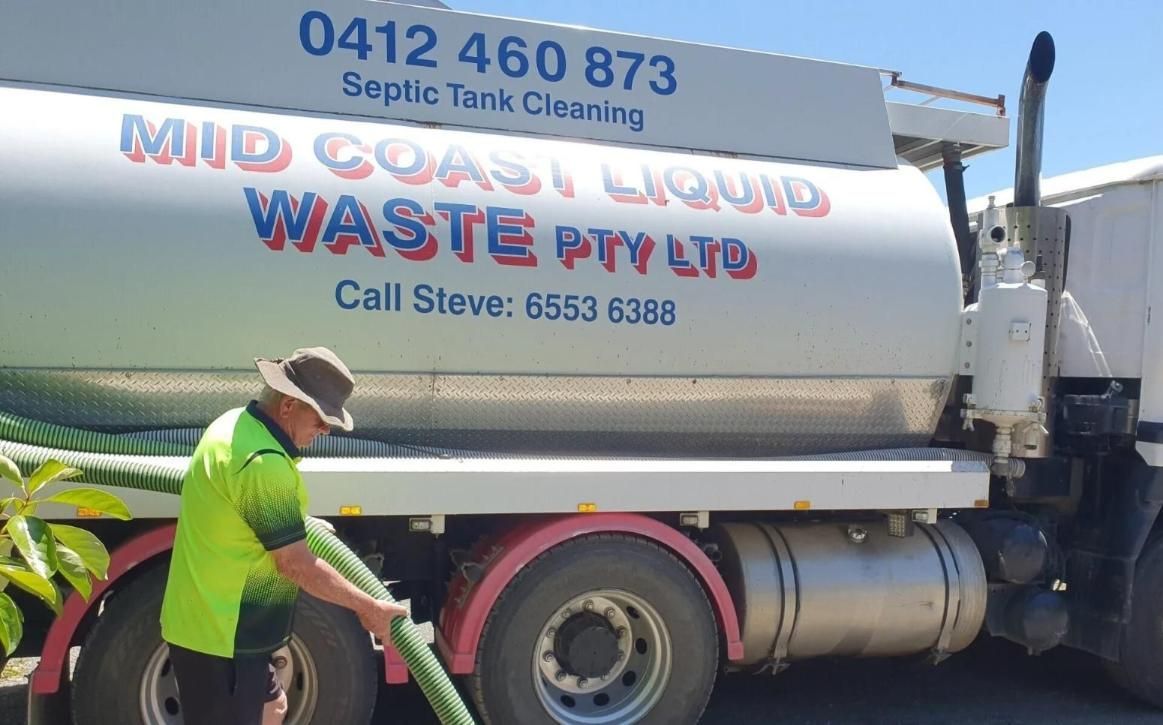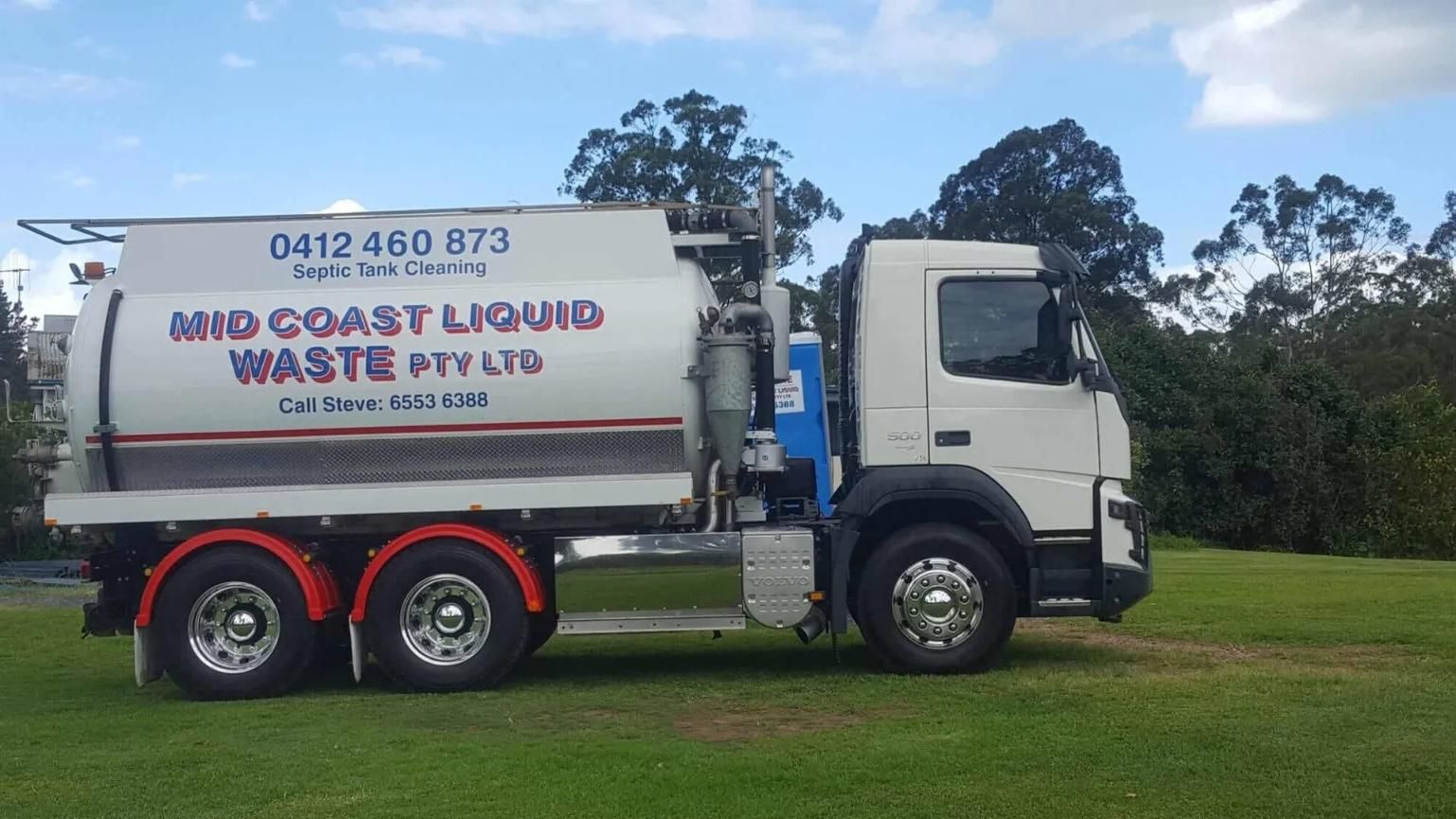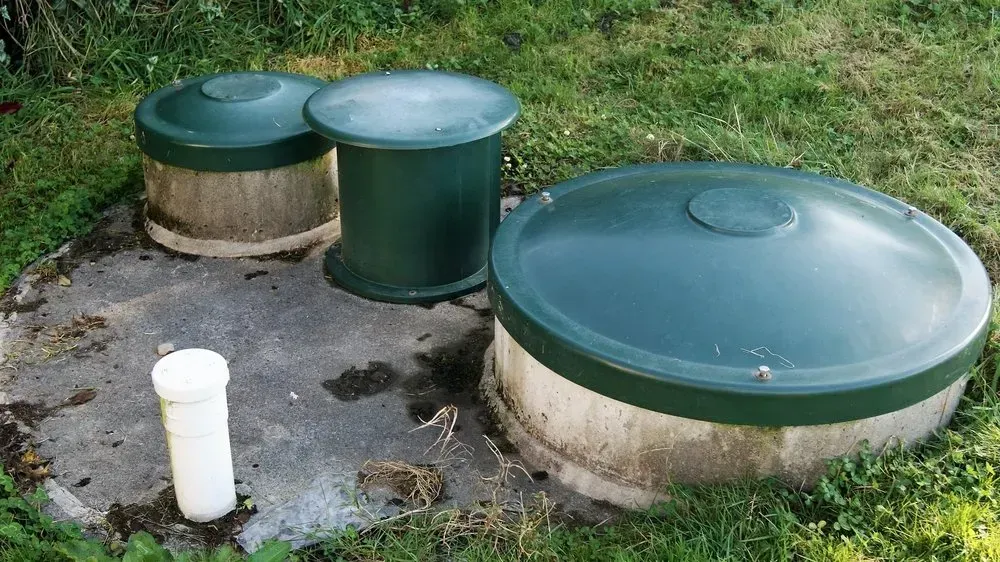Wastewater Management Mid North Coast
Available 24/7, our family-run team delivers fast, professional liquid waste solutions with powerful vacuum trucks across the Mid North Coast.
Quick & Clean Waste Management Services
At Mid Coast Liquid Waste, we offer wastewater management services on the Mid North Coast. Our mobile truck can collect and dispose of all liquid waste in accordance with environmental health and safety regulations. We also offer services for full pump-outs, site spills and liquid waste spills.
If you live remotely or in an older home, you might be using a septic tank to dispose of wastewater. Our qualified team can help you maintain your system, ensuring it continues to operate smoothy and comply with regulations.
Ready to get started? Call 02 6553 6388 for bookings and enquiries. We operate throughout Taree, Nabiac, Wingham, Gloucester, Bulahdelah, Tea Gardens, Wauchope, Moorland, Forster, Coomba Park, and surrounding areas.
Why is Wastewater Management Important?
Effective wastewater management is essential to protect public health and the environment. Wastewater can contain harmful pathogens that spread disease; it can also pollute surface water and groundwater if not properly treated. That’s why it’s important to arrange servicing for wastewater systems.
Regular servicing allows us to clean sewers and septic tanks, as well as make sure pumps and other equipment are operating correctly. Importantly, scheduled servicing can help prevent blockages, overflows and leaks from occurring. To find out more, please get in touch.
Greywater Removal
In addition to standard wastewater services, we also remove greywater—the waste generated from baths, showers, laundry, and sinks. Greywater needs to be regularly removed to avoid system overloads, bad odours, and potential health risks.
Our team is licensed and experienced in the safe and compliant removal of greywater for domestic and rural properties across the Mid North Coast. We use specialised equipment to ensure efficient removal and environmentally responsible disposal. Whether it’s a one-off job or part of a routine pump-out schedule, we’re here to help. Call to book your service today.
Frequently Asked Questions
What is wastewater and why does it need to be removed?
Wastewater is any water that has been used and contaminated by domestic, commercial, or industrial activities. It includes water from toilets, showers, sinks, washing machines, and industrial processes. If left untreated, wastewater can pose serious environmental and health risks. It often contains harmful bacteria, viruses, chemicals, and nutrients that can pollute waterways, soil, and groundwater. In rural and regional areas where properties rely on septic systems or on-site wastewater treatment systems, regular removal is essential to prevent overflows, unpleasant odours, and costly system failures. Scheduled wastewater removal also helps systems perform more efficiently, protecting both the property and the environment.
How often should a wastewater system be pumped out?
The frequency of wastewater pump-outs depends on several factors, including the size of the tank, the number of people in the household, water usage habits, and the type of system in place. Generally, domestic septic tanks or wastewater systems should be pumped out every 3 to 5 years. However, properties with higher water usage, smaller tanks, or more complex systems like Envirocycle or AWTS (Aerated Wastewater Treatment Systems) may require more frequent servicing—sometimes as often as every 12 months. Regular inspections by a licensed waste removal provider can help determine the right schedule and prevent issues before they arise.
What is the difference between greywater and blackwater?
Greywater and blackwater are both types of wastewater, but they differ in terms of origin and level of contamination. Greywater comes from showers, baths, laundry machines, and bathroom sinks. While it may contain dirt, soap, and minor contaminants, it is generally less hazardous and easier to treat or recycle. Blackwater, on the other hand, comes from toilets and sometimes kitchen sinks or dishwashers. It contains human waste and pathogens and requires more intensive treatment and disposal methods. Managing both types properly is essential for maintaining a safe and environmentally compliant property, especially in rural or off-grid areas.
Can wastewater be recycled or reused?
Yes, wastewater—particularly grey water—can be recycled and reused under certain conditions. Grey water can be treated through filtration and disinfection processes and then reused for non-potable purposes such as garden irrigation, toilet flushing, and even laundry. However, it must be managed carefully to avoid health risks and comply with local council regulations. Black water typically requires more advanced treatment and is less commonly reused in domestic settings. Some properties use aerobic treatment systems, like Envirocycle or AWTS units, to process and recycle wastewater on-site. These systems produce treated effluent that can be safely dispersed into soil or irrigation areas.
Servicing Remote Properties
Council-Compliant Procedures
Trusted Since 2007
Get a Quote
Thank you for contacting Mid Coast Liquid Waste.
We will get back to you as soon as possible.
Please try again later.
